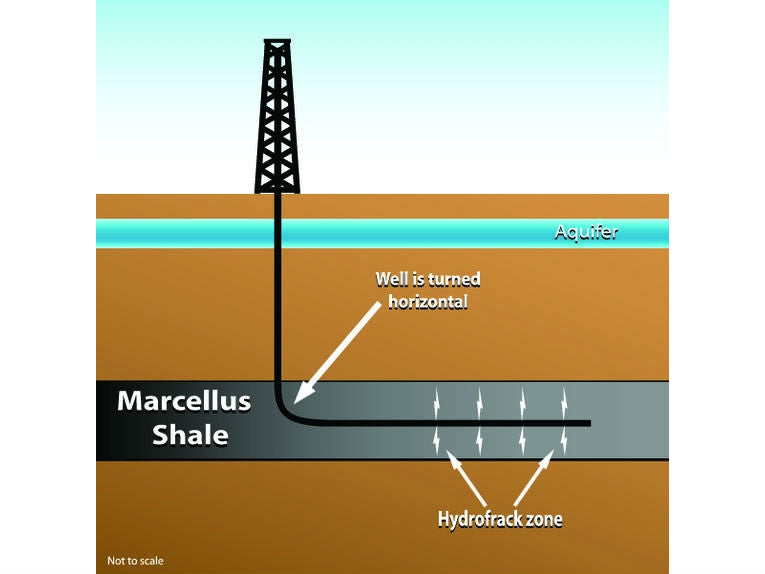Is New York really aware of the cost of fracking? That's the question being asked by environmentalists as the debate over the controversial high volume hydraulic technique crosses the pond.
For nearly three hours the Department of Environmental Conservation Chief, Joseph Martens faced questions from the New York State Assembly. They are investigating the health, environmental and economic impact of fracking over industrial drilling in Marcellus Shale.
More than 70 witnesses will testify, from both the public and private sector as well as residents who could be affected if extracting the shale gas from underneath New York goes ahead.
The Department for Environmental Conservation has been heavily criticised by groups who claim that by failing to ban the use of fracking chemicals, protecting the city's water supply and for failing to address the lack of treatment facilities for some of the waste products generated by fracking they are not looking after the health and welfare of new Yorkers.
The New York Water Rangers accuse the state government of failing to look at the practice comprehensively and that more analysis needs to be done to make sure concerns raised by the population can be assuaged.
Further south, environmental campaigners are angrily reacting to proposals to transform the Penokee Range in Wisconsin into a paradise for the mining industry.
Beneath its landscape popular with hikers is billions of tonnes of iron ore. Gogebic Taconite want to extract it, promising 700 new jobs worth around $60,000 a year and millions of dollars of tax revenue for the state.
Republicans have tiptoed around the issue, concerned that although it is a welcome boost to the economy, next year is election year.
"These are hard, gut-wrenching questions. Economic development, environmental damage, how can we have jobs for our kids," said Tom Evans, a Wisconsin Geological and Natural History Survey mining specialist.
Local leaders look at the economy but conservationists fear the impact on the local ecology; the risk of pollution damage to forest cover and local wildlife like trout streams.
The late heatwave in the UK making it the hottest October has been good news for rare species of moths, experts claim.
Butterfly Conservation says warm weather and southerly winds has seen species like the death's head hawk-moth and crimson speckled moths, spotted in the UK, in what they are calling the best immigration season in five years.
Immigrant species of moths are often found in the south coast, in Devon and Sussex, but this year the prolonged warmer weather has seen a greater range of species. Around 20 rarer species have been recorded in Cumbria, Cornwall and Ireland for the first time.
Mark Parsons from the Butterfly Conservation comments on one particular species.
"The flame brocade was resident in Sussex for at least half a century from about the mid-19th century and has been a scarce immigrant since then."
"This is the first time the moth has been seen in these numbers in this country for about 130 years. It appears to have been making an attempt to re-colonise these shores, possibly as a result of more favourable weather conditions through climate change."
Meanwhile the austerity measures that have been part and parcel of the UK political landscape for 18 months could impact on the Conservatives green agenda.
Chancellor George Osborne this week told the Tory party Conference in Manchester that the UK would cut "carbon emissions no slower but also no faster than our fellow countries in Europe".
This seems to backtrack on the original Tory pledge made by Prime Minister David Cameron that the UK would lead the way in green initiatives. The fear now at Number 10 is that low carbon technology could prove to be too expensive.
The Guardian reports that Scottish Power has halted a green energy project at Longannet power station in Fife over concerns for its commercial viability. £1bn had been promised by the Department for Energy and Climate Change yet Scottish Power, along with its co-developers Shell and the National Grid think it won't be enough as part of the project requires a trial burying carbon emissions in the North Sea.










